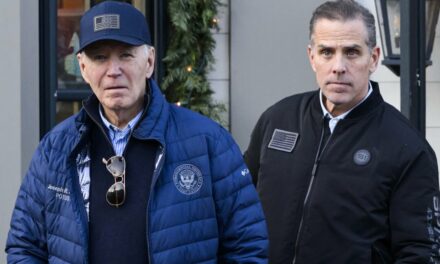We support our Publishers and Content Creators. You can view this story on their website by CLICKING HERE.
Russell Taylor’s cooperation and good conduct does not entitle him to permission to travel to Washington for the inauguration, the judge determined.
A federal judge has denied a Jan. 6 defendant’s request to travel to Washington to attend President-elect Donald Trump’s inauguration, a trip requiring court approval under his probation terms.
Russell Taylor, who pleaded guilty to conspiracy for his role in the Jan. 6, 2021, Capitol riot, had sought permission to travel with his wife and children to witness the ceremony, scheduled for Jan. 20, when Trump will be sworn into office for a second term.
Citing the “particular nature and severity” of Taylor’s actions during the Capitol incident, the judge noted Taylor’s own admission that his intent in traveling to Washington on Jan. 6, 2021, was to “intimidate” members of Congress and “influence” them to reject the certification of then-President-elect Joe Biden’s victory in the 2020 presidential race. Taylor planned to breach the Capitol, carried weapons and body armor, urged others to arm themselves, pushed through police barricades, and threatened officers during violent clashes, Lamberth said.
“This summary paints the picture of Mr. Taylor’s unusually grave conduct,” the judge wrote. “While he did not personally assault law enforcement officers, he did threaten them and encourage other rioters who were actively assaulting them.”
Lamberth acknowledged that Taylor had “commendably” taken responsibility for his actions and cooperated with investigators, earning him a probationary sentence that was “drastically” more lenient than any of his co-defendants. However, Taylor’s cooperation and good conduct does not entitle him to permission to travel to Washington for the inauguration, the judge determined.
“It would not be appropriate for the Court to grant permission to attend such a hallowed event to someone who carried weapons and threatened police officers in an attempt to thwart the last Inauguration, and who openly glorified ‘insurrection’ against the United States,” Lamberth wrote.
The judge said he had taken into account the invitation letter from Stewart, which endorsed Taylor’s character, but dismissed it as only of “marginal” importance to his request for permission to travel to attend the inauguration.
Several other Jan. 6 defendants—including Cindy Young and Christopher Belliveau—have sought permission to attend the inauguration.

 Conservative
Conservative  Search
Search Trending
Trending Current News
Current News 







